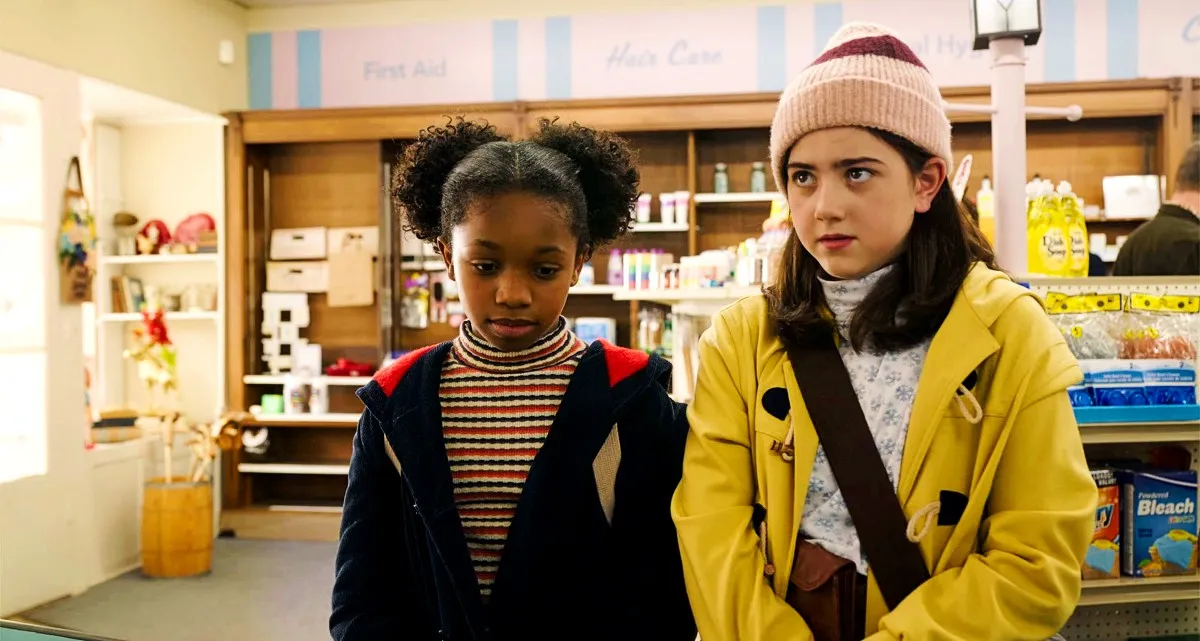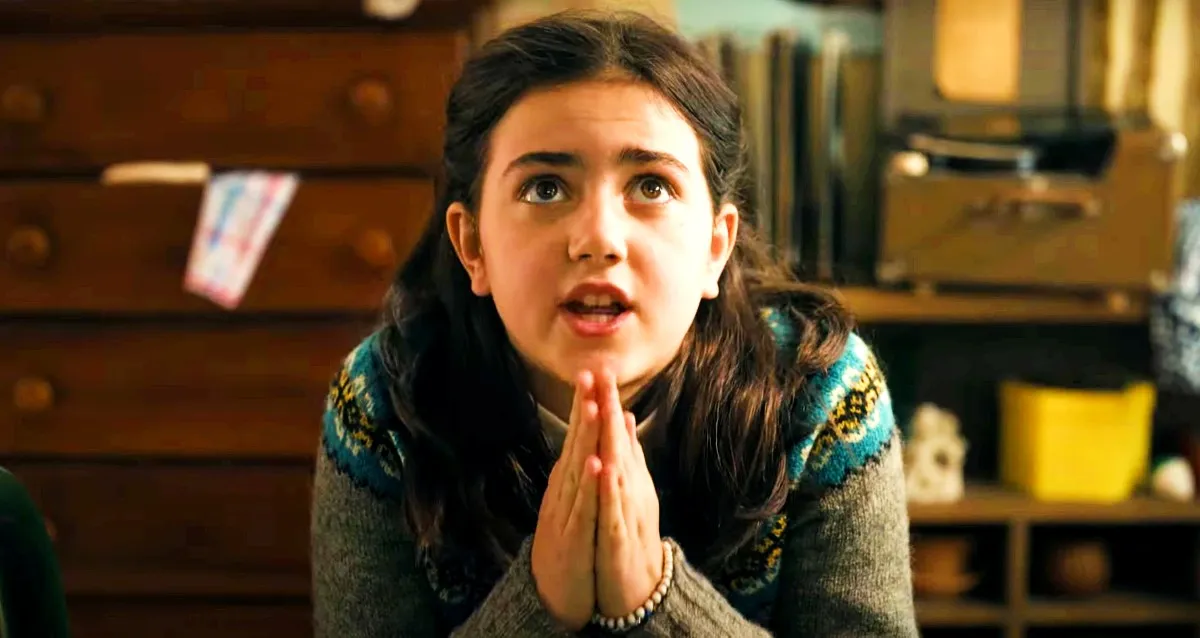Judy Blume waited over 50 years to see her revolutionary coming-of-age classic, Are You There, God? It’s Me, Margaret, on the big screen, and the film proves exactly why that wait was necessary. After all, it was only in the past decade that her novel finally stopped appearing on lists of the most frequently challenged and censored books for its frank discussion of menstruation, sexuality, and religion. It isn’t surprising that Blume and her fans feared a film adaptation wouldn’t do justice to her work and would try to tone down the important themes of the book. Fortunately, Are You There, God? It’s Me, Margaret is a worthy adaptation that remains faithful to the source material and elevates the themes once deemed controversial instead of putting a lid on them.
The film follows sixth-grader Margaret Simon (Abby Ryder Fortson), who struggles to adjust to moving from New York City to New Jersey while also dealing with the usual challenges of reaching early adolescence. In addition to fretting about getting her period and finding out who her real friends are, Margaret faces pressure to identify her religious affiliation. While her Jewish father and Christian mother raise her without religion to allow her to choose on her own, her grandparents on both sides push her to put a label on her connection to god, who she finds herself regularly talking to in her mind.
A nostalgic depiction of unrestrained girlhood

Are You There, God? It’s Me, Margaret captures both the joys and trials of growing up. While it captures all of the ways that growing up can be complicated, it also highlights how beautiful and carefree childhood can be, and the necessity of protecting that. Whether it’s getting wild at summer camp, giggling about your first crush, or attending your first awkward childhood dinner party, it’s refreshing to see kids just getting to be kids. Margaret’s parents never lecture her about being too tomboyish, having a crush, or not going to church. They’re able to celebrate and smile over the innocence of her first crush and encourage her to find herself whenever she’s ready. One intimately poignant moment has Margaret’s mother letting her go to school without socks, even though she warns her about blisters. The sock debacle is such a small thing, but it’s part of the whole beauty of depicting two parents who see their preteen daughter as her own individual who can make her own choices in life without being micromanaged.
In a world that is so obsessed with policing everything women and girls do, Are You There, God? It’s Me, Margaret highlights how much more carefree and fun childhood looks when some of that constant control is loosened and girls can just be girls. Just as the film celebrates childhood, it also celebrates growing up. Today, the transition of girls into womanhood is often strangely depicted as something to be dreaded or embarrassed of. Fortunately, the film tosses this tired trope away and normalizes and celebrates all of the things that come with growing up. A couple of years ago, it would’ve been unheard of for a film to show a girl practicing putting on sanitary pads, dancing around with socks stuffed in her bra, or referring to her bust as “wizard hats,” but here is Are You There, God? It’s Me, Margaret doing it all.
This is why the film feels almost as revolutionary as the books in the way it boldly and unapologetically tackles adolescence. With states like Florida still seeking to forbid young girls from talking or learning about their periods, it is all the more important that we have films like Are You There God? It’s Me, Margaret, that shows that there’s nothing taboo or shocking about being a woman. Menstruation from the perspective of a sixth-grader is completely innocent and often laugh-out-loud hilarious—it’s not whatever those who are pushing for “Don’t Say Period” think it is.
One big step in normalizing womanhood
Are You There, God? It’s Me, Margaret isn’t just an enjoyable film that allows one to relive childhood and see girlhood celebrated in a way it wasn’t when they were young. It is that, but it may also be a very necessary resource for young girls in understanding their bodies and their rights in a society that is always trying to censor anything related to womanhood and trying to diminish women’s voices. It shows that women and girls can choose their own religion, aren’t obligated to please their families, and can embrace and celebrate their sexuality and bodies in whatever way works for them rather than in whatever way the world is comfortable with.
Films like Are You There, God? It’s Me, Margaret raise hope that someday every girl can have the onset of her period be a laughing, hugging, and crying moment, where there are no shameful whispers, lectures, or comments about the “curse.” Just full acceptance and normalization of a big milestone in a girl’s life.
(featured image: Lionsgate)









Published: Apr 25, 2023 05:11 pm